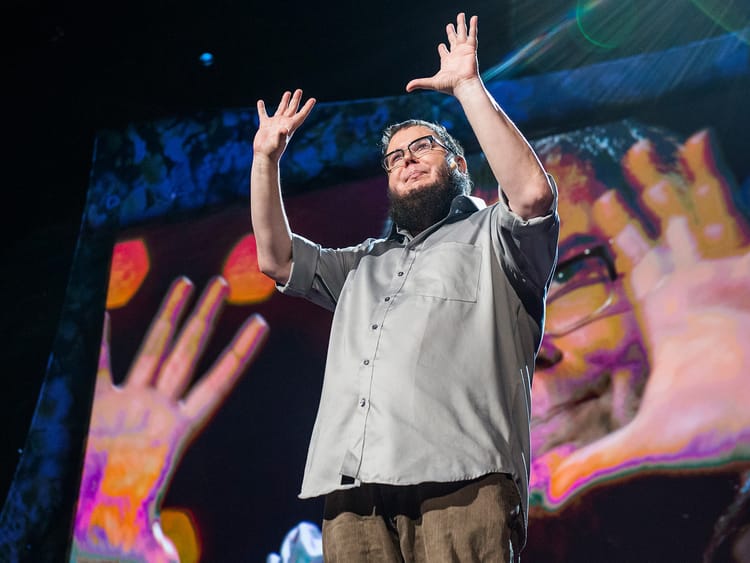“To This Day ... for the Bullied and Beautiful” by Shane Koyzcan
• public
Table of contents
Koyzcan's heartfelt spoken word performance addresses the lasting impact of bullying, spreading a message of resilience, self-acceptance, and kindness, reminding us of the beauty within every individual.
For Key Ideas, Questions and Quotes from this talk, you can scroll below.
Shane Koyzcan gave this speech at the TED Conference. All rights to the speech and the video above belong to TED.
About Shane Koyzcan
Shane L. Koyczan, born 22 May 1976, is a Canadian spoken word poet, writer, and member of the group Tons of Fun University. He is known for writing about issues like bullying, cancer, death, and eating disorders. He is most famous for the anti-bullying poem “To This Day” which has over 25 million views on YouTube. (Source: Wikipedia)
Key Ideas From Talk
Have you ever felt excluded, different, labeled, or forced to conform to certain patterns? Is there anyone among us who has never felt this way at some point in their life? Doesn't society constantly pressure us to be something, to do something?
If all these questions, or rather their answers, bother you, Shane's speech will also be equally disturbing. At the same time, it will be just as meaningful.
As someone who is tired of the majority's truth, the society's discourse, and the rules, I really liked Shane's perspective. Let me reflect on it with a few ideas from talk;
- The lasting impact of bullying: Bullying leaves deep emotional scars that can affect a person's self-esteem, confidence, and overall well-being long into adulthood. It is crucial to recognize and address the long-term consequences of bullying.
- The hidden struggles behind bullying: Understanding that bullies often act out of their own pain and insecurities can help foster empathy and compassion. Recognizing the underlying struggles can humanize bullies and contribute to breaking the cycle of harm.
- The power of words and self-expression: Words have a profound impact on individuals' self-worth and can either uplift or harm. By embracing self-expression and using words to share personal stories, healing and empowerment can be found.
- The importance of community and support: Building a supportive community is essential for healing from bullying. Having people who accept, understand, and uplift can help survivors navigate the challenges and overcome the negative effects of bullying.
- Embracing individuality and celebrating differences: Embracing and celebrating one's unique qualities and differences is a powerful way to reclaim personal identity and foster self-acceptance. It is through embracing diversity that we can create a more inclusive and compassionate society.
- The healing power of sharing and listening to stories: Sharing personal stories creates connections and opens up avenues for healing. By actively listening to others' stories and creating safe spaces for sharing, we can support one another and foster empathy and understanding.
Questions to Ask Ourselves
- How have past experiences of bullying shaped my self-perception and self-worth?
- In what ways do I carry the pain of those experiences with me today, and how does it impact my daily life?
- What coping mechanisms or strategies have I developed to deal with the effects of bullying, and are they still serving me well?
- How can I nurture self-compassion and self-acceptance in the face of past wounds?
- Am I holding onto any resentments or negative beliefs about myself that originated from the bullying experiences? How can I begin to let go and heal?
- What aspects of my uniqueness and individuality do I embrace and celebrate, and how can I amplify those qualities in my life?
- How can I contribute to creating a more inclusive and compassionate environment for myself and others who may have experienced bullying?
- How can I use my own voice and story to inspire and support others who have faced similar challenges?
Notes From Talk
Related List and Guide
This talk is a part of following list: "Talks That Changed My Perspective".
